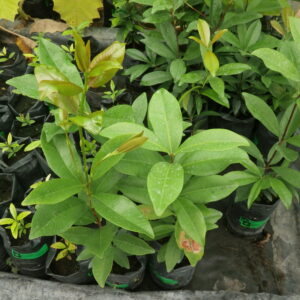
Related products
-
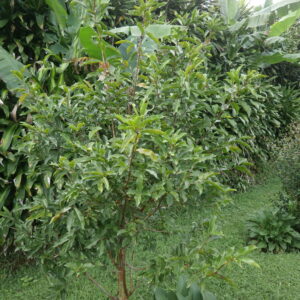
Cas of Costa Rica
Fruit orchard ₡2,550.00 Add to cart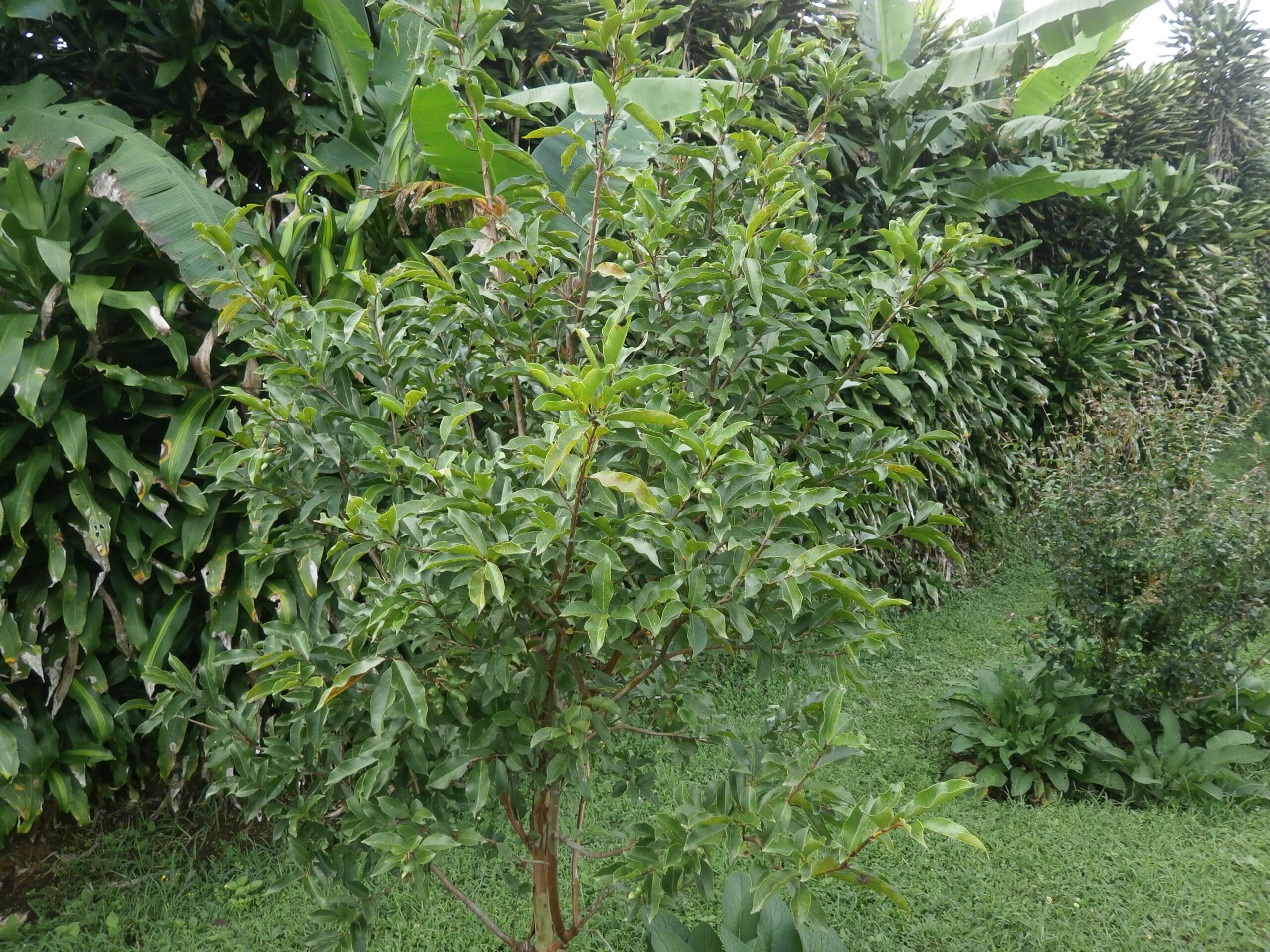
Cas of Costa Rica
₡2,550.00
SKU: 0490 Category: Fruit orchardScientific name: Psidium friedrichsthalianum
Family: Myrtaceae
Origin: Mexico and S America
Medicinal use: Cas (Psidium friedrichsthalium) is a species of tree in the guava family found mainly in Costa Rica, Nicaragua, Guatemala, and El Salvador. It is used as the base for Cas fresco or cas soda, in which Costa Ricans mix it with sugar and water and sometimes add milk to achieve a fruit-based drink with a slight acid flavor. With that same soda, it is frozen and homemade ice cream is made.
14 in stock
-
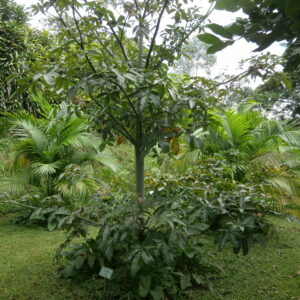
Chestnut, Malabar
Fruit orchard ₡3,750.00 Add to cart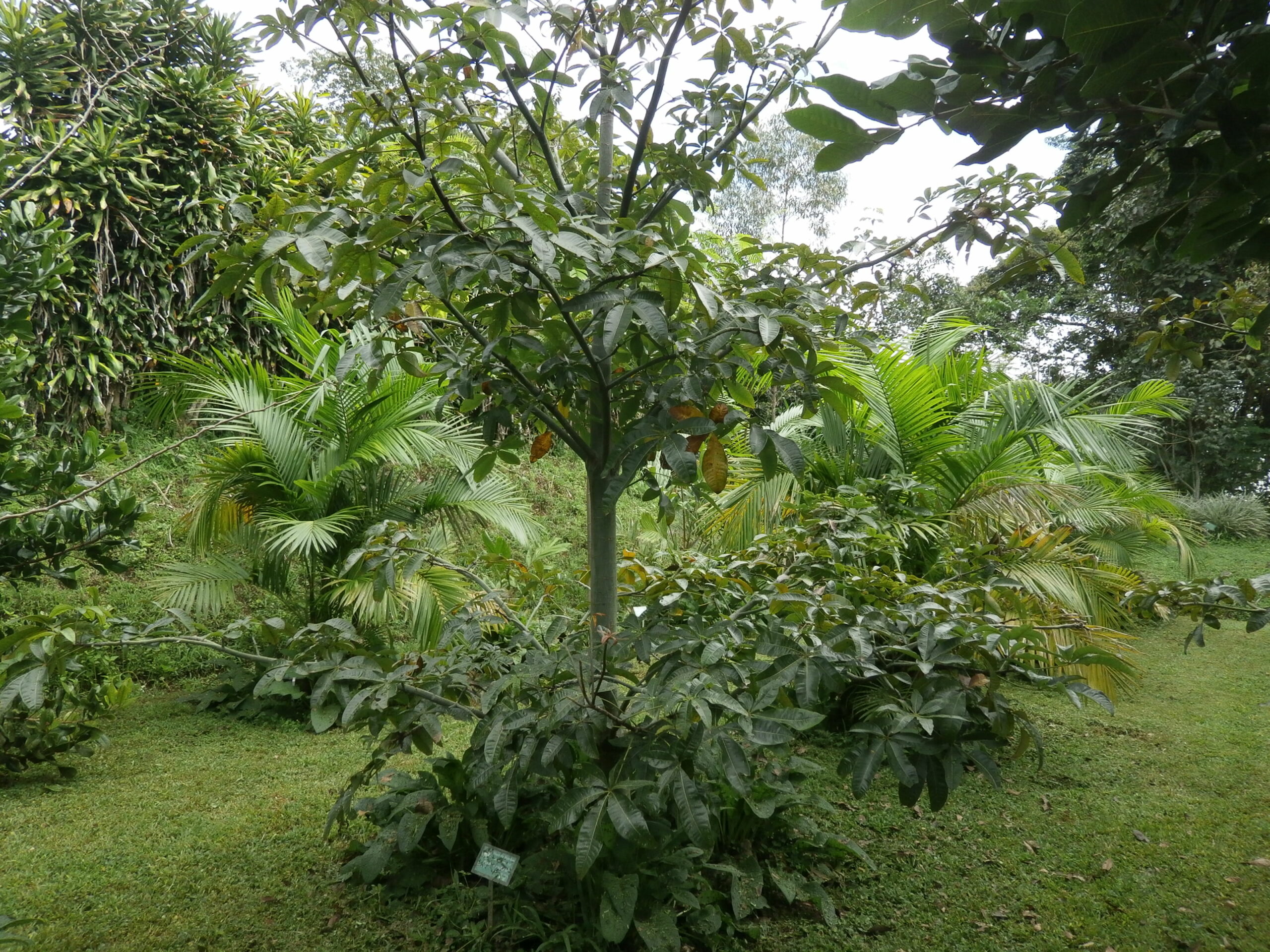
Chestnut, Malabar
₡3,750.00
SKU: 1435 Category: Fruit orchardScientific name: Pachira insignis
Family: Malvaceae
Origin: Tropical America
Medicinal use: Pachira insignis is an arboreal species of humid tropical soils. In addition to their ornamental use, the leaves, roots, and flowers of malabar nuts are used for medicinal purposes. The chemical constituents in this are alkaloids vasicin, vasicinone, vasicinol, maiontone, and ketone essential oil.
63 in stock
-
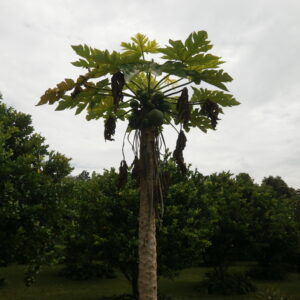
Papaya
Fruit orchard ₡2,550.00 Add to cart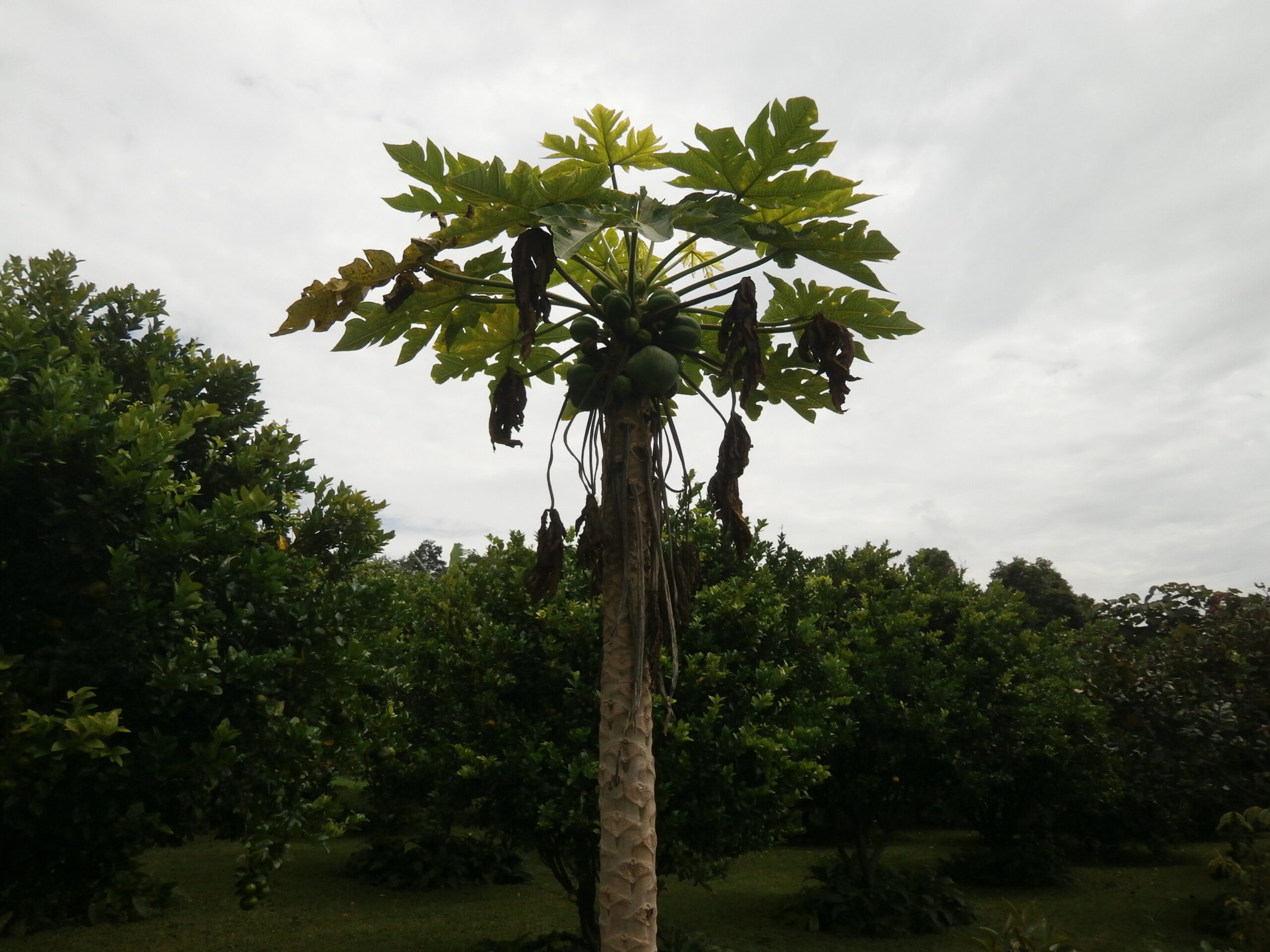
Papaya
₡2,550.00
SKU: 1536 Category: Fruit orchardScientific name: Carica papaya
Family: Caricaceae
Origin: Mexico and C America
Medicinal use: Carica papaya is a very rich shrubby fruit of the genus Carica in the family Caricaceae. Its fruit is commonly known as papaya, papayón, olocotón, papayo, mamón, milky or milky. The fruits have a smooth texture and an oblong shape, and can be green, yellow, orange or pink. The fruit is usually consumed raw, without its peel and its seeds. The unripe green papaya fruit can be eaten in salads and stews.
20 in stock
-
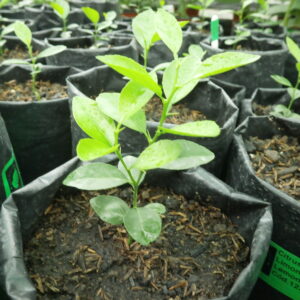
Lemon, Criollo, Lime, Key
Fruit orchard ₡2,550.00 Add to cart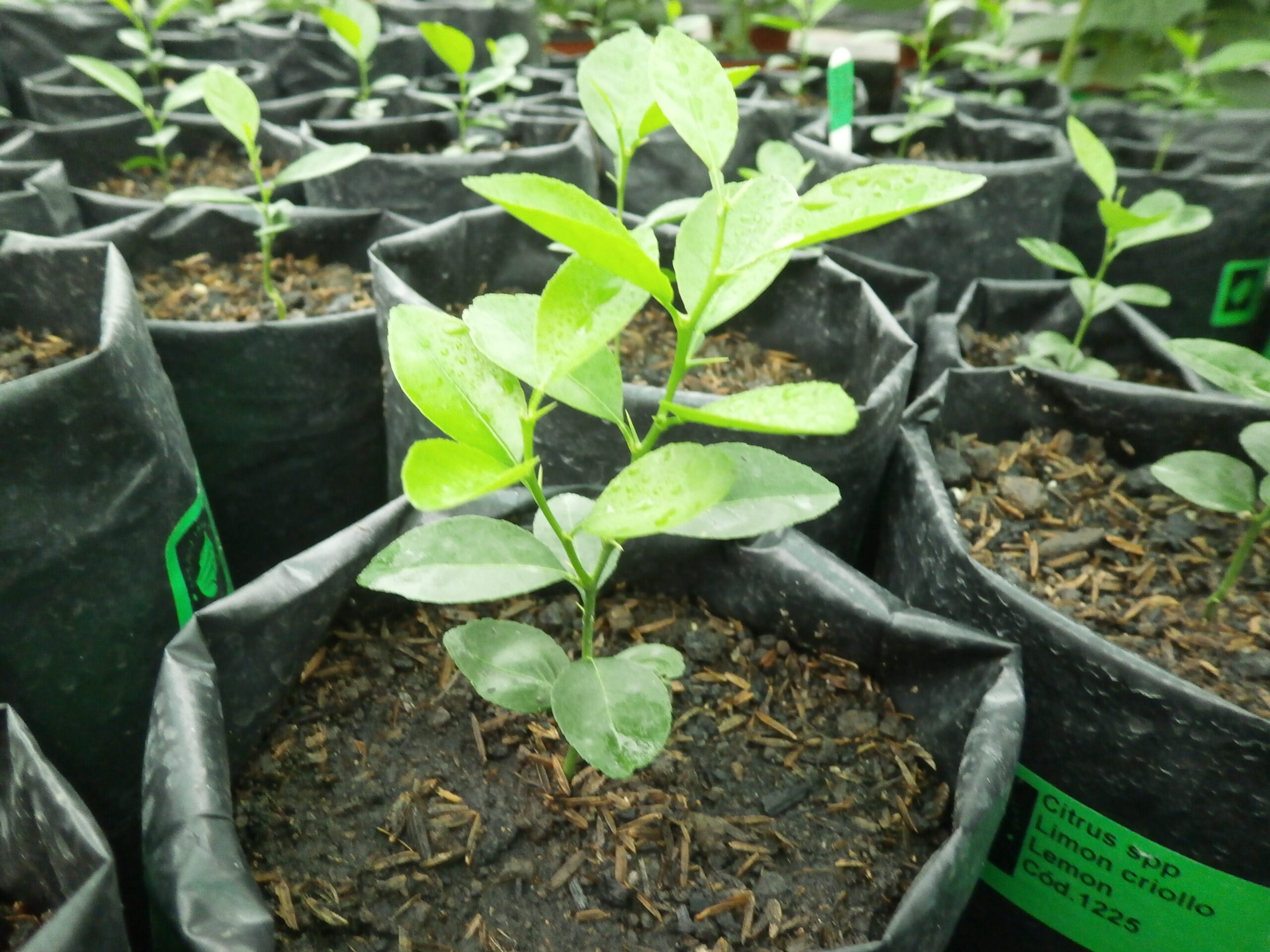
Lemon, Criollo, Lime, Key
₡2,550.00
SKU: 1225 Category: Fruit orchardScientific name: Citrus × aurantiifolia
Family: Rutaceae
Origin: Asia and India
Medicinal use: The Creole lemon is a lime. Citrus aurantifolia is actually a lime, it is more acidic than a conventional lemon. The fruits have 10 to 12 segments. The pulp is greenish-yellow in color, tender, juicy, very acidic, with a distinctive aroma. The fruits are small, approximately an inch to an inch and a half in diameter, and round, with a thin, smooth rind, greenish-yellow when ripe and highly aromatic.
2 in stock

